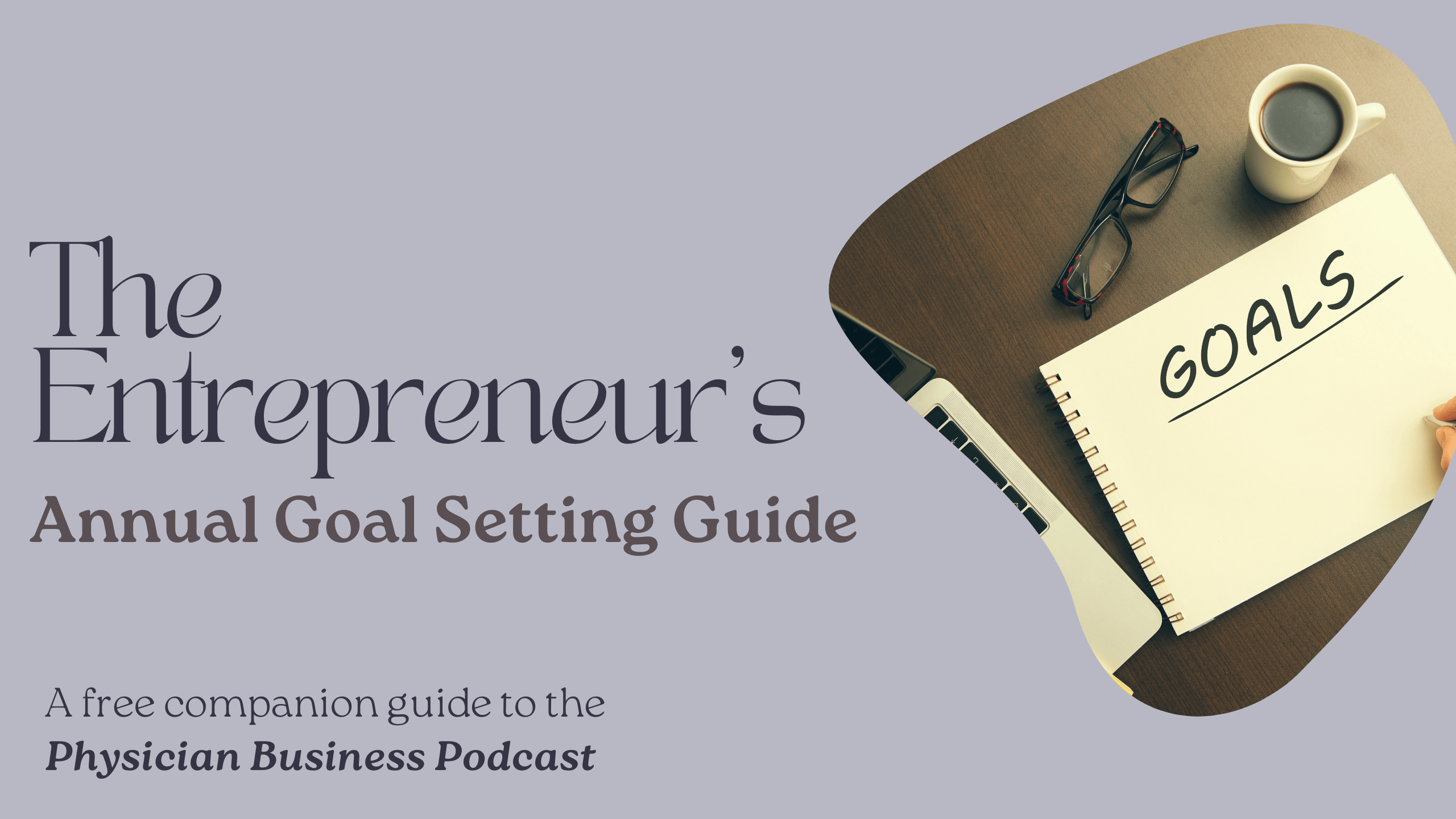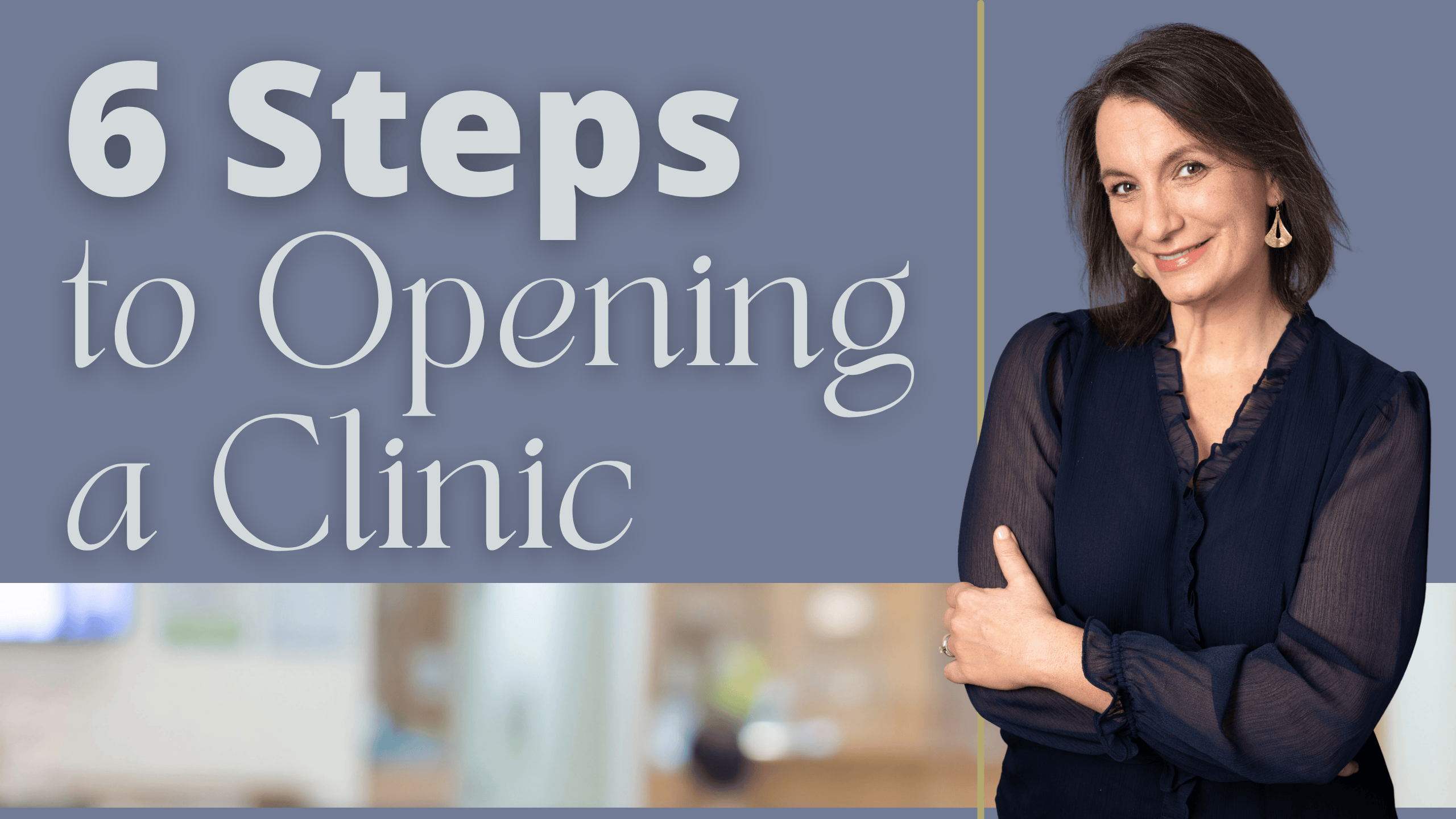4. Which Business Growth Phase Is Your Clinic In? (And Why It Matters)
Aug 06, 2025Not sure if you're building your clinic the "right" way?
If you're a physician entrepreneur, chances are you've asked yourself this question more times than you'd like to admit. You're questioning every decision—wondering if your slow growth means you're failing, or if you're even focusing on the right things.
The uncertainty can be exhausting. You're juggling patient care, family responsibilities, and endless to-do lists… often without clear proof that your hard work will pay off. Add in conflicting advice from well-meaning friends and family, and it's easy to lose momentum before your business even finds its footing.
But after working with dozens of physician entrepreneurs, here’s what I’ve discovered: most of the confusion comes from not understanding which stage of business you're actually in. What works brilliantly in the beginning can sabotage you later—and strategies meant for established practices will overwhelm you if you try them too early.
That's why I want to walk you through the two distinct stages every clinic goes through: the Proof of Concept stage and the Growth stage. Once you understand where you are, everything becomes clearer.
In this post, you'll discover how to identify your current stage, the biggest challenges to expect at each phase, and exactly what to focus on so you can stop second-guessing yourself and start building the practice you actually want.
The Two Stages of Building Your Clinic
Most clinics grow through two distinct stages—the Proof of Concept stage and the Growth stage. Knowing which stage you’re in makes it much easier to focus on the right priorities (and stop wasting energy on the wrong ones).
Stage 1: Proof of Concept - You have an idea, but no patients and no proven revenue model yet.
Stage 2: Growth - You've proven your concept works, and now you're ready to scale and optimize.
The magic happens when you stop trying to do everything at once and focus only on what your current stage actually requires.
Stage 1: Proof of Concept - The "Spaghetti at the Wall" Phase
This is the “let’s see if this works” phase. You’ve got an idea for your clinic, but you haven’t proven that patients will consistently pay for your services.
Your main goal here is to go from zero to a repeatable, dependable flow of patients.
That means lots of testing, tweaking, and experimenting—figuring out what works and what doesn’t.
The Biggest Challenges You'll Face
- Work-life integration becomes real fast. If you're a parent (especially if you're a mom), you'll quickly realize that building a business requires different childcare arrangements than you've had before. This isn't about being a bad parent—it's about recognizing that your new business needs attention just like a child does.
- You'll doubt yourself constantly. Without evidence that your concept works, you're essentially jumping off a cliff and hoping you can build wings on the way down. Other people won't see the potential the way you do, and their well-meaning advice can derail your progress.
- The numbers can feel overwhelming. Surprisingly, a lot of my physician clients don't consider themselves good at math. But I guarantee that if you went to medical school, you can figure out basic bookkeeping. Start with a simple Excel spreadsheet and don't overcomplicate it until you actually need something more sophisticated.
What to Focus On
- Figure out who your ideal patient really is (not who you think it should be)
- Test different ways of delivering your services
- Learn what energizes you versus what drains you as an entrepreneur
- Keep your overhead low and your experiments quick
The key insight here is to stop trying to impress your medical peers and start focusing on transformation for your patients. Your board certifications matter way less to patients than your ability to solve their specific problems.
Stage 2: Growth - When "Good Enough" Stops Being Good Enough
Once you’ve proven people want what you offer—and you have a steady stream of patients—you move into the Growth stage.
Your main goal here is to optimize what’s already working so you can serve more patients, earn more revenue, and reduce stress.
The Uncomfortable Truth About Growing
Here's what nobody tells you: you'll probably need to slow down and sometimes even lose revenue temporarily to set yourself up for bigger growth later.
I had one client who had to raise her prices significantly after a few years in business. She was terrified everyone would leave. Instead, most of her patients stayed and didn't even blink at paying more. Why? Because she'd spent the proof of concept stage figuring out how to create massive value.
What Changes in the Growth Stage
Your mindset shifts from opportunistic to strategic. Instead of trying everything, you're now optimizing the things that work best.
- Infrastructure becomes crucial. That basic EMR you started with might not handle the volume you're seeing now. Your basic website might need an upgrade. These backend changes are annoying but necessary.
- Staffing gets complicated. The people you hired in the early days might not be the right people for where you're going. This is hard but normal—and ignoring it will hold you back.
- You'll need to say “no” more often. To lower-paying patients, to services that don't align with your vision, to opportunities that seem good but don't fit your strategic focus.
The Questions That Signal You're in Growth Mode
- Do I keep all these spinning plates or focus on just a few?
- Which activities actually move the needle versus just keep me busy?
- How do I streamline without losing what makes my practice special?
If you're asking these questions, you've graduated from proof of concept. Embrace it.
Your Next Step: Stop Guessing, Start Diagnosing
The biggest mistake clinic owners make is trying to use Growth strategies in the Proof of Concept stage (or vice versa).
But when you know your stage, you can start focusing only on the activities that make sense right now, use your time and energy more effectively, and grow your clinic faster without burning out.
Take a moment to reflect:
First, honestly assess which stage you're in. Are you still experimenting and trying to prove your concept works? Or do you have consistent revenue and you're ready to optimize and scale?
Second, identify your biggest pain point right now. What's keeping you up at night? What feels impossibly stuck?
Once you know where you are and what's blocking you, you can finally stop second-guessing every decision and focus on what actually matters for your stage.
The physician entrepreneurs I work with who embrace this framework consistently report feeling more confident, more focused, and yes—they grow faster too.
You don't need perfect balance. You need conscious clarity about where you are and what comes next.
Ready to stop second-guessing yourself and start building with confidence? If you have any questions or you want to share any of your own experiences, please send me an email to [email protected] or book a free discovery call with me by going to www.amandasabicer.com.


